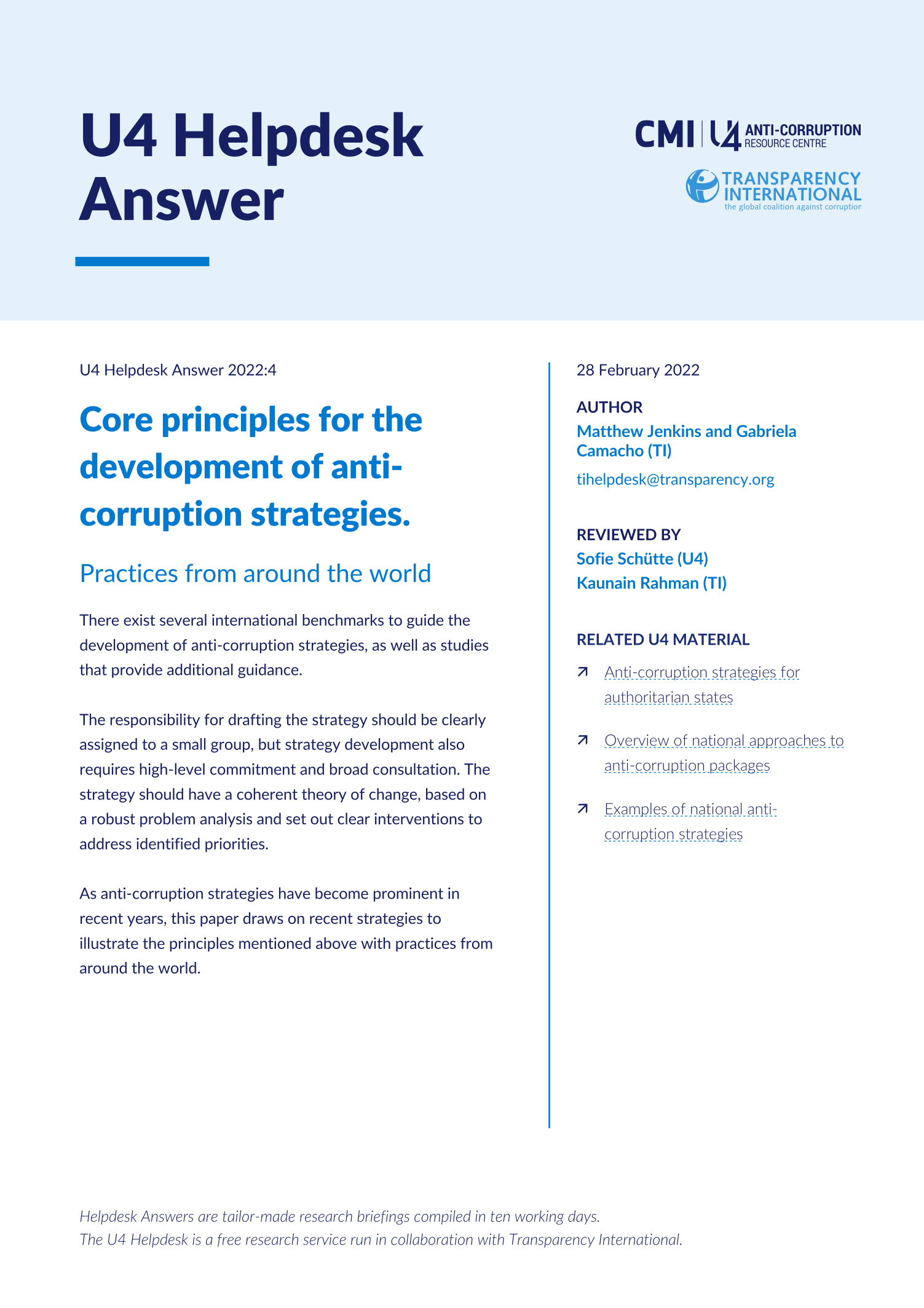Main points
- The main principles for the development of anti-corruption strategies can be divided into five core phases of elaborating a strategy.
- 1. Drafting process: overall responsibility for the strategy should be clearly assigned, political support of the highest level secured, and broad consultations led to collect inputs for the strategy.
- 2. Theory of change: a robust problem analysis and a logical framework that clearly link the problem to the prioritised objectives.
- 3. Formulation of an action plan: it should clearly outline the activities and measures, as well as how they will be proritised and sequenced and who will be in charge of each one. Indicators with baselines, milestones and targets should identified and costs and budgeting taken into consideration.
- 4. Implementation phase: good implementation comes with assigning the leadership of the strategy to one executive body and outlining the coordination mechanisms between all the relevant actors, including international networks.
- 5. Monitoring for adaptive management and iterative programming

